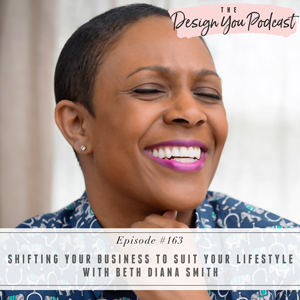
I have a fun and super transparent episode for you this week, friends. This week’s guest joins me to talk about her anti-hustle approach to business and why in order to do your best work, you have to feel like the best version of yourself. If you’re tired of working nights, weekends, falling into bad habits, and putting your health last, you’ll love this episode!
Beth Diana Smith is the Owner and Principal Designer of Beth Diana Smith Interior Design and is a proud Founding Member of the Black Artists + Designers Guild, a member of the House Beautiful Advisory Council, and a member of the NYSID DEI. She joins me this week to share how she made the necessary shifts in her business to prioritize her health and wellbeing.
Listen in this week and hear how Beth developed her self-awareness and realized the importance of prioritizing yourself and setting boundaries in your life and business. We share some awesome tips for putting yourself first, becoming aware of what you need to be your best self, and we show you how to use this knowledge to show up sustainably day after day. I love this conversation and I know you will too!
If you want help creating a business with thriving revenue streams so that you can design the life you really want this year, now is your chance! We’re going to be opening the doors to the Design You Coaching Program really soon, get on our waitlist now!





